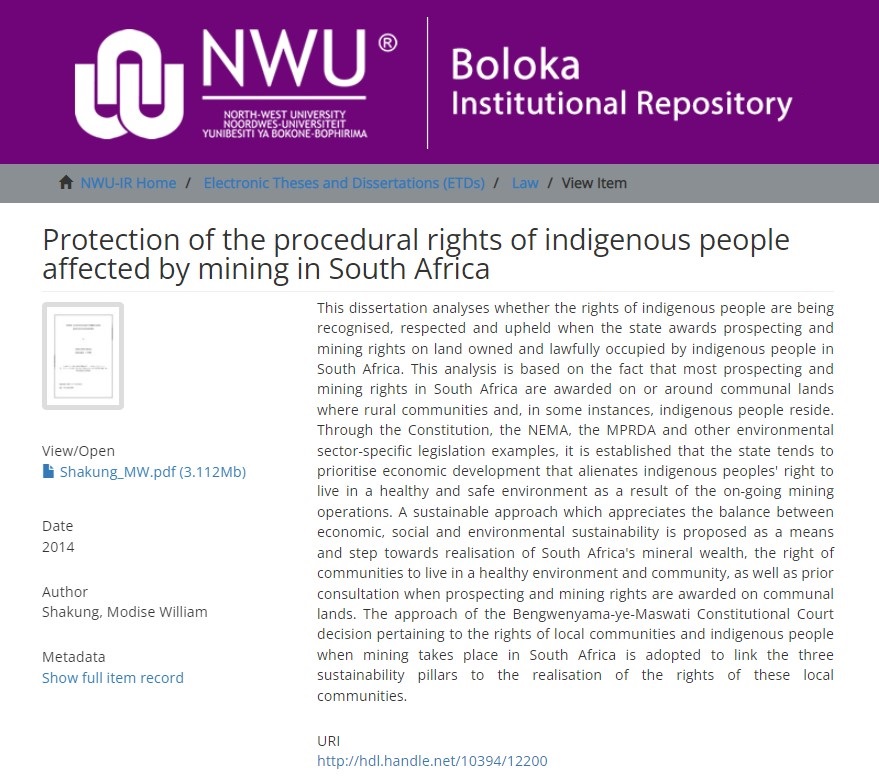Protection of the procedural rights of indigenous people affected by mining in South Africa

This dissertation analyses whether the rights of indigenous people are being recognised, respected and upheld when the state awards prospecting and mining rights on land owned and lawfully occupied by indigenous people in South Africa. This analysis is based on the fact that most prospecting and mining rights in South Africa are awarded on or around communal lands where rural communities and, in some instances, indigenous people reside. Through the Constitution, the National Environmental Management Act, the Mineral and Petroleum Resources Development Act and other environmental sector-specific legislation examples, it is established that the state tends to prioritise economic development that alienates indigenous peoples' right to live in a healthy and safe environment as a result of the ongoing mining operations.
A sustainable approach which appreciates the balance between economic, social and environmental sustainability is proposed as a means and step towards realisation of South Africa's mineral wealth, the right of communities to live in a healthy environment and community, as well as prior consultation when prospecting and mining rights are awarded on communal lands. The approach of the Bengwenyama-ye-Maswati Constitutional Court decision pertaining to the rights of local communities and indigenous people when mining takes place in South Africa is adopted to link the three sustainability pillars to the realisation of the rights of these local communities.
This resource is part of the Mining Towns Collection kindly sponsored by the Municipal Capability and Partnership Programme. Abstract based on source.


Comments